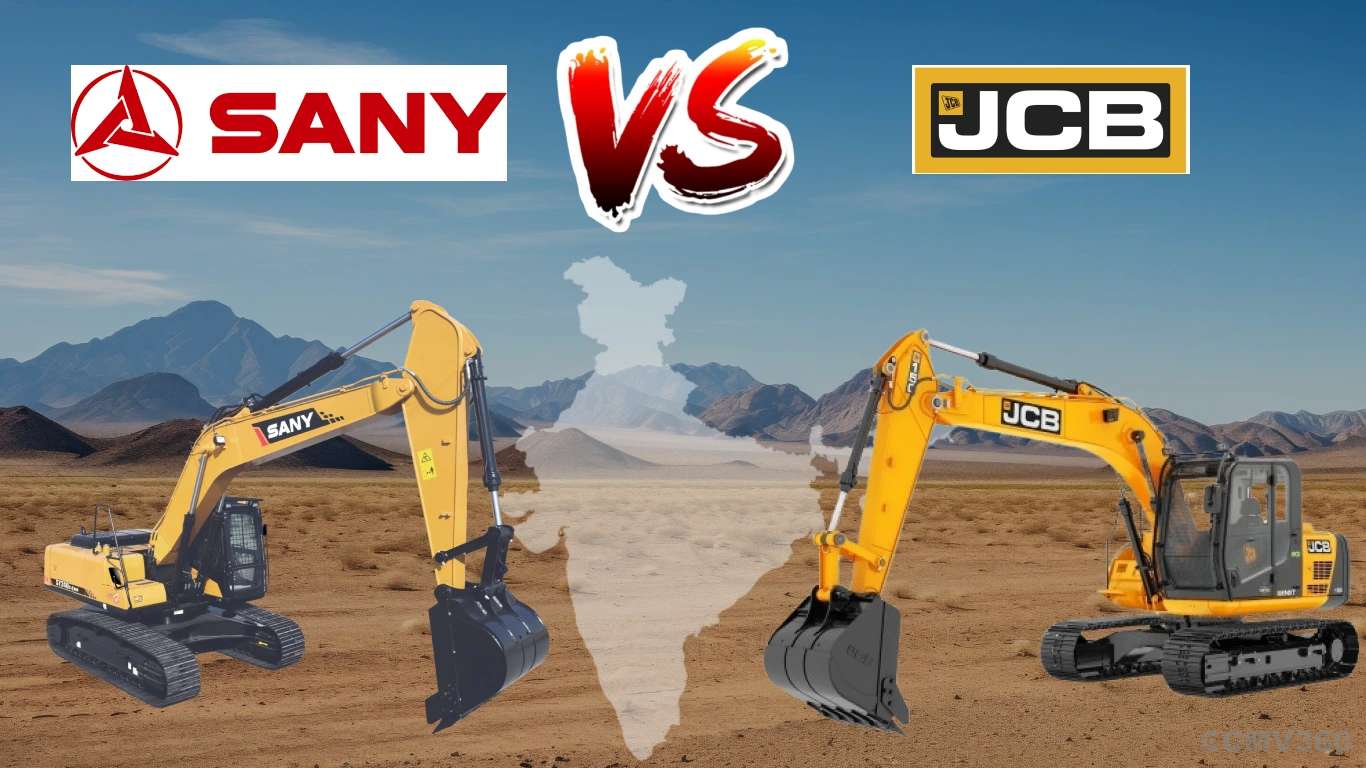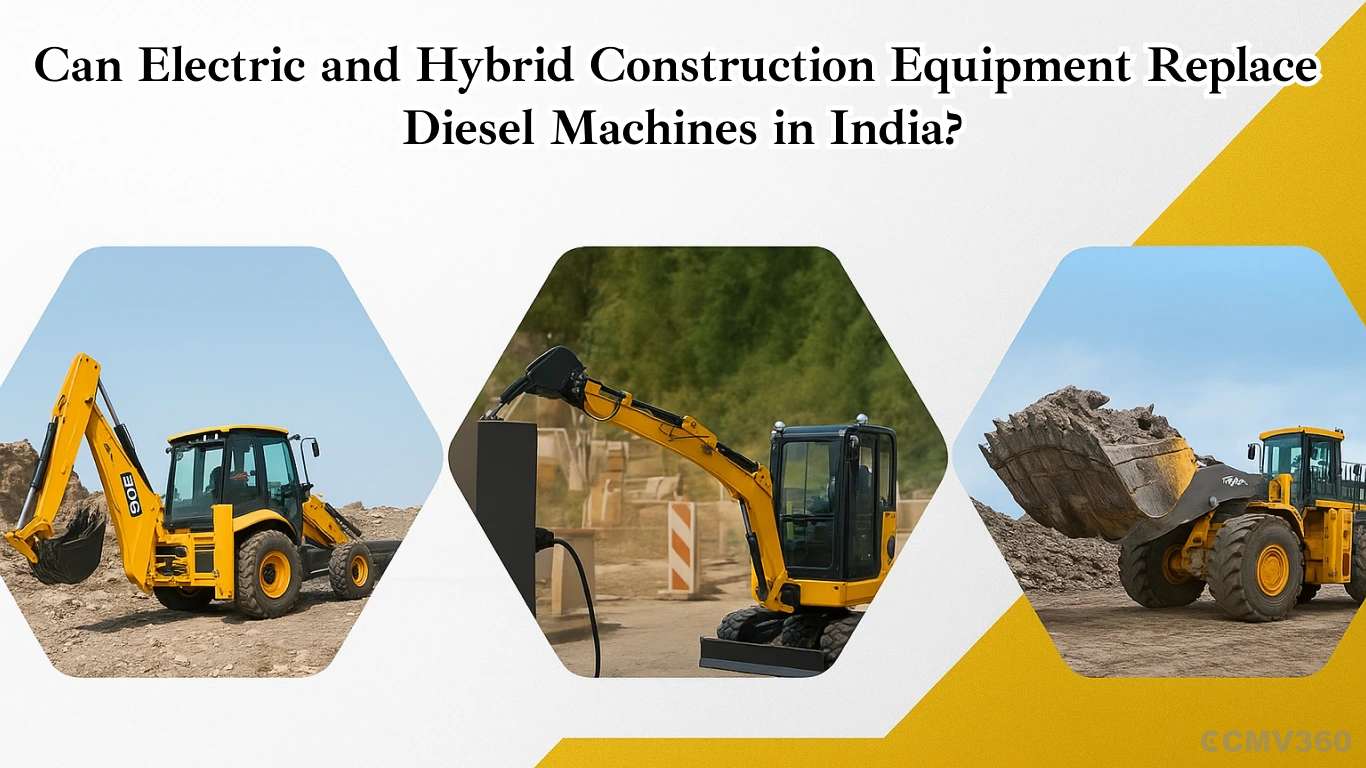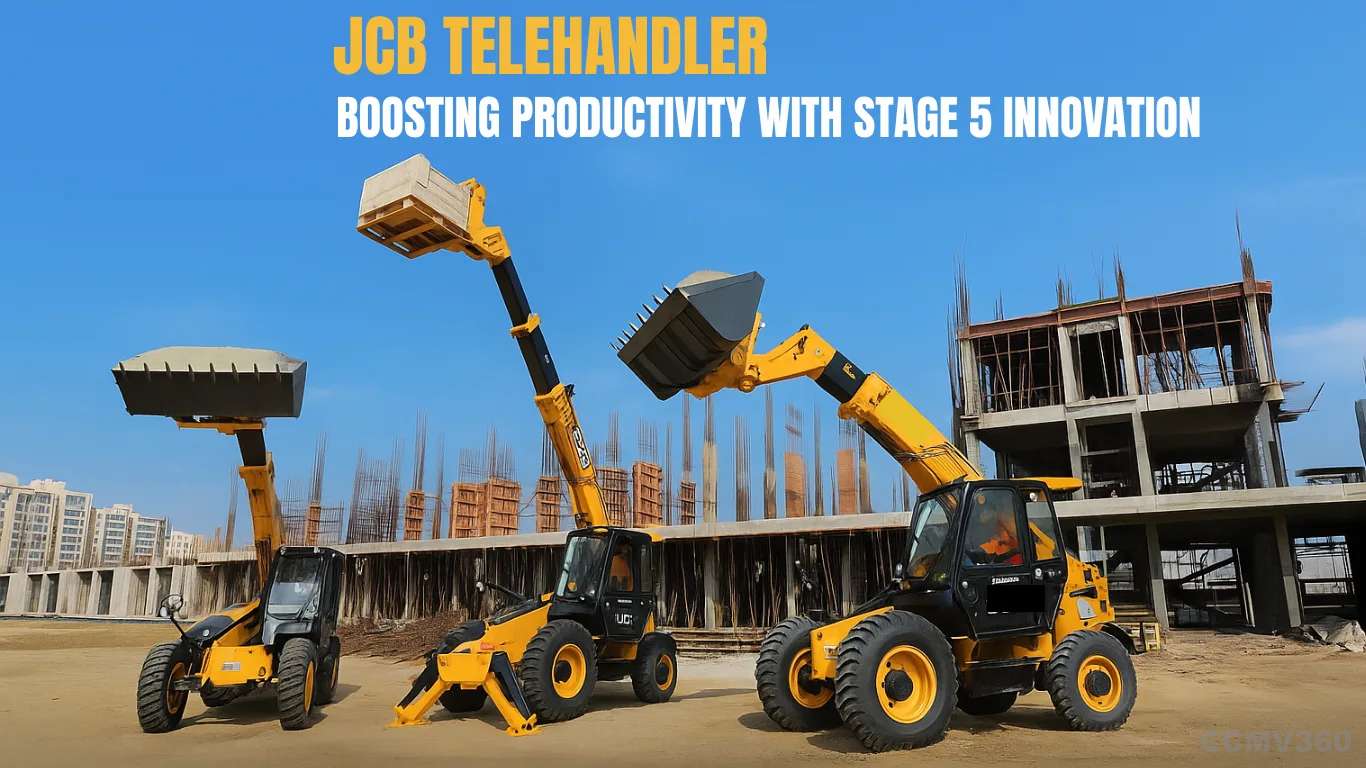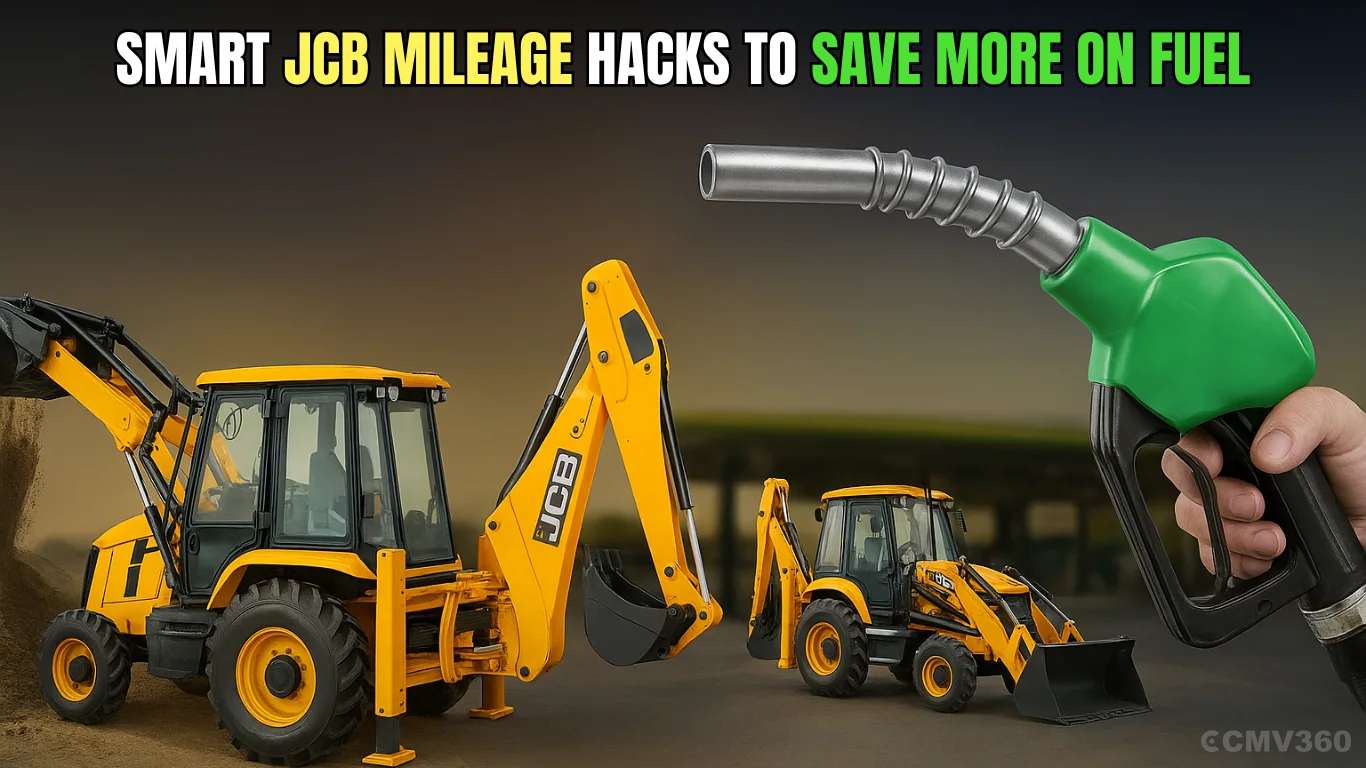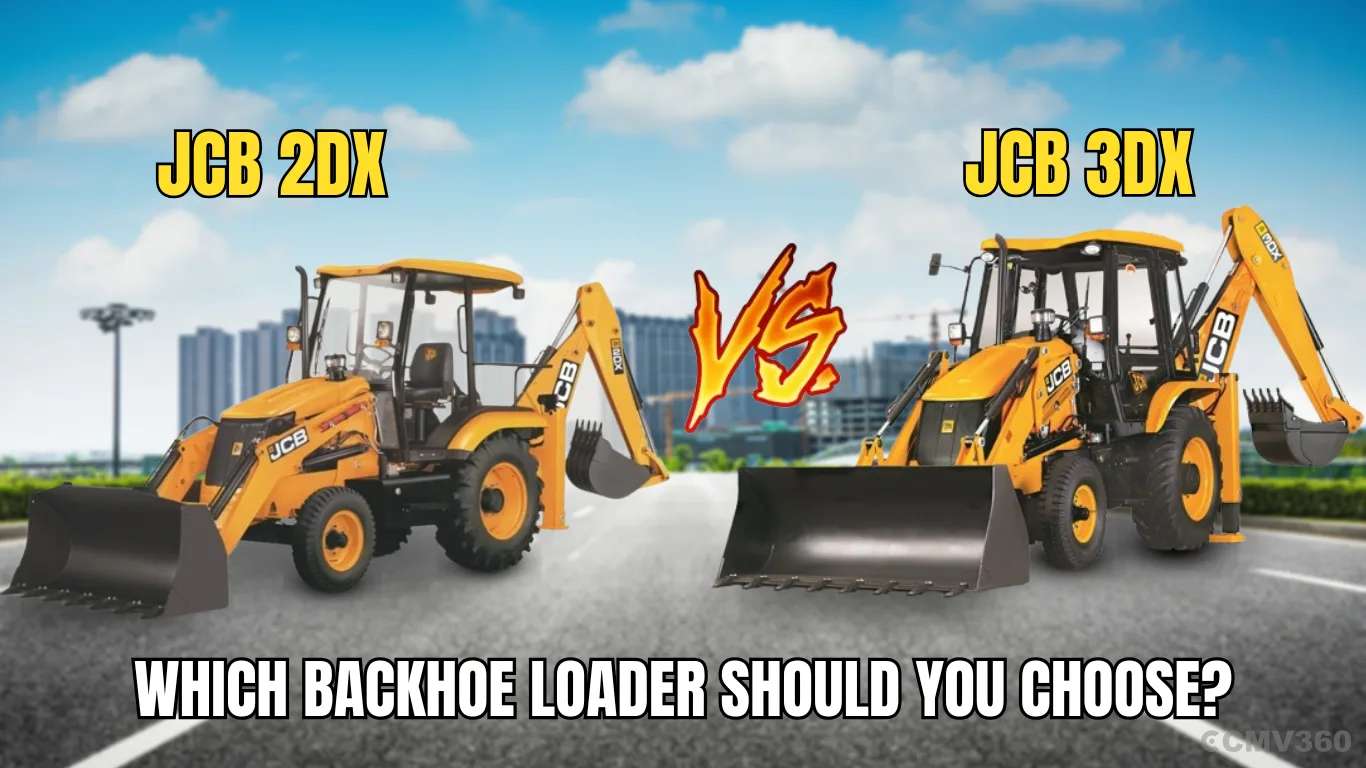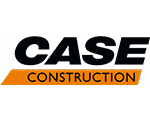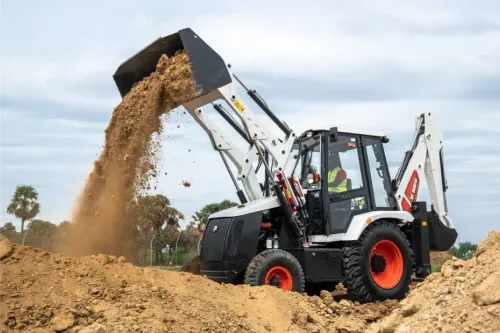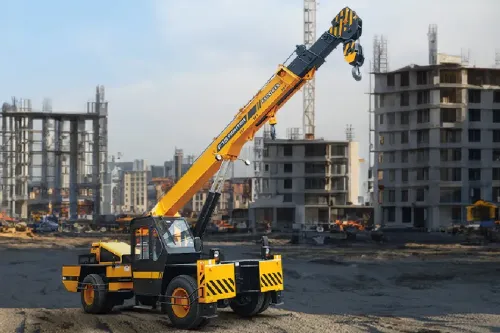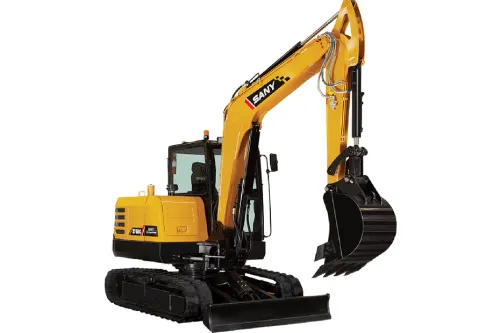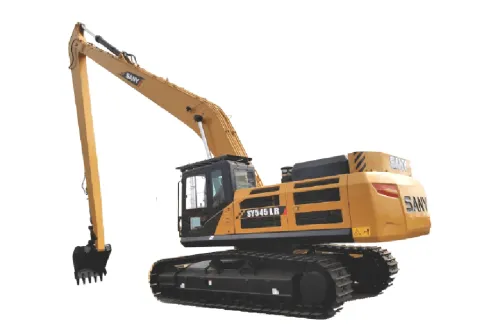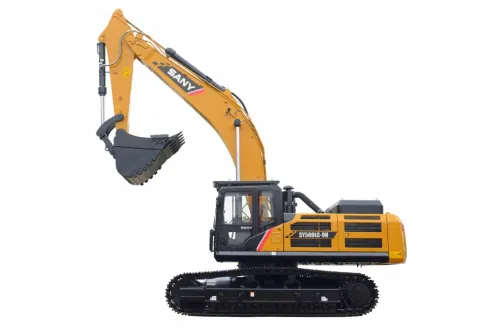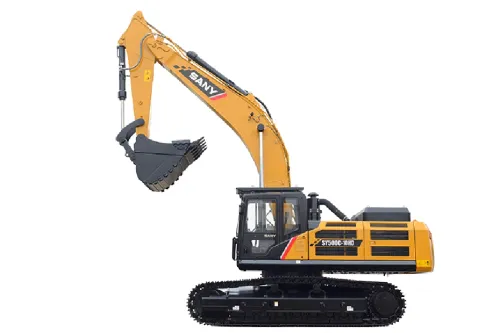Ad
Ad
How Tata Hitachi Construction Machinery Company Ltd. is Powering India’s Shift to Electric Construction Equipment
Share
98,965 Views
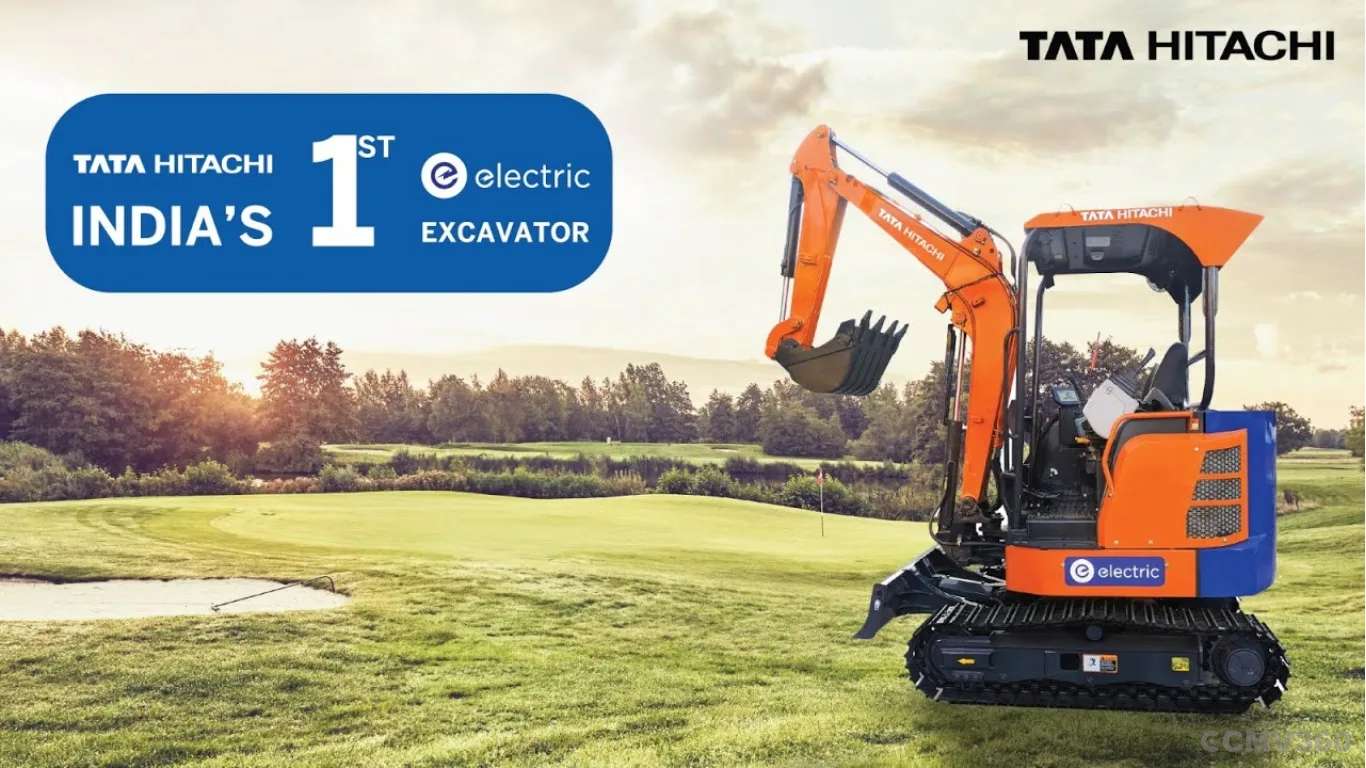
Posted By Robin Kumar Attri on 22-Oct-2025 09:24 AM

India’s construction and mining sectors are undergoing a silent revolution. Rising concerns about climate change, stricter environmental regulations, and the urgent need for energy efficiency are prompting a paradigm shift in how heavy equipment is powered. At the front of this transition is the joint-venture manufacturer Tata Hitachi Construction Machinery Company Ltd. (THCMC) and its parent, Hitachi Construction Machinery Co., Ltd. (HCM). Together they are championing electric construction equipment and signalling a future where diesel engines no longer dominate the construction site.
In this article we’ll explore how Tata Hitachi is leading this change in India, the benefits of electric construction machines, the challenges involved, market trends ahead, and why this matters for companies, workers, and the environment. If you’re searching for “electric excavator India”, excavators in India, “electric mining equipment India”, or “Tata Hitachi electric machines”, here’s your complete guide.
Also Read: Smart JCB Mileage Hacks to Save More on Fuel
Why Electric Construction Equipment Matters
Several interlinked forces are driving the move toward electric heavy equipment in India:
Climate and environmental pressures: Diesel-powered machines emit large amounts of pollutants (NOₓ, particulate matter, CO₂) and make construction sites environmentally unfriendly. Electric equipment offers a pathway to cleaner air and a smaller carbon footprint.
Energy and cost concerns: Fuel prices fluctuate, maintenance and downtime add costs, and companies are keen to reduce long-term expenditures. Electric motors promise lower running costs and simpler maintenance.
Noise and site impact: Traditional machines run loud and disturb nearby communities—electric machines operate more quietly, making them more suitable for urban and residential settings.
Regulatory and incentive landscape: Governments globally and in India are moving toward stricter emission norms and offering incentives for greener technologies, the adoption of electric equipment allows firms to stay ahead of compliance.
In short, the construction industry is at an inflection point where sustainability meets practical business advantage.
Overview of Electric Construction Equipment – Global & Indian Landscape
Globally, HCM (Hitachi Construction Machinery) has been developing electric excavators for over 20 years, ranging from small battery-powered machines to giant electric excavators weighing up to 800 tonnes. In India, this capability is increasingly coming to the fore:
For example, HCM machines like the EX 2600-6E (a 260-tonne electric excavator) and the EH 3500AC-3 (a 190-tonne electric dump truck) are already used in India’s mining sector.
Tata Hitachi has recently displayed prototypes in India—such as their 3-ton mini electric excavator at EXCON 2023 and a concept 20-ton electric excavator at BAUMA 2024.
These moves demonstrate that electric heavy equipment is not only viable but is also is also being actively localized and integrated into Indian projects.
By offering machines from 2 tonne battery-powered excavators up to 800-tonne models (in global contexts), the development path covers light, medium, and very heavy applications.
Tata Hitachi’s Leadership in India
Tata Hitachi is positioned uniquely in the Indian market. A 40:60 joint venture between Tata Motors Ltd. (40 %) and Hitachi Construction Machinery (60 %), it combines local manufacturing know-how with global engineering.
Key highlights of how Tata Hitachi is stepping up:
The company is investing heavily in localisation and manufacturing expansion, with an investment of ₹200 crore in FY25 to boost innovation, quality, and localisation at its plants in West Bengal (Kharagpur) and Karnataka (Dharwad).
Localisation efforts aim to raise levels to 70 % (and beyond) in the next 2-3 years.
At major industry events, Tata Hitachi exhibited its electric concept machines: at EXCON 2023, a 3-ton electric excavator prototype; at BAUMA 2024, the concept of a 20-ton electric excavator (EX 210LC Electric) was showcased.
The company emphasises sustainable solutions and, in its media coverage, stated that the electric excavator is “a testament to our technical prowess and our commitment to sustainable solutions.”
Tata Hitachi also serves the mining sector, where electrified equipment is increasingly demanded for tougher conditions.
In sum, Tata Hitachi isn’t just participating in the electric equipment trend; they are driving it within India.
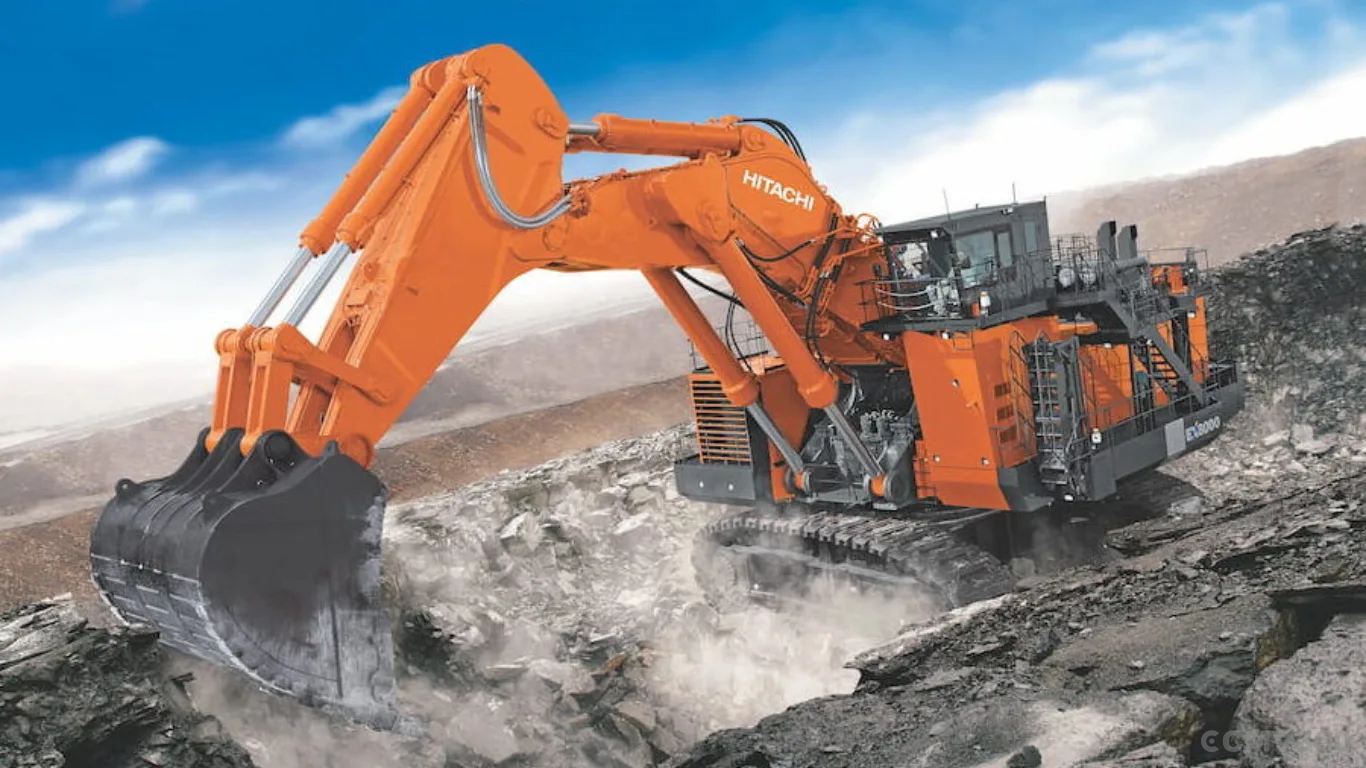
Benefits of Electric Construction Equipment
As companies evaluate electric machines, several tangible benefits make the case compelling:
1. Zero Emissions on Site: Electric construction machines do not emit exhaust fumes at the point of use. This dramatically improves air quality at the work site and helps companies meet ever-tighter environmental controls and community-facing obligations.
2. Lower Operating Costs: Although the purchase price of electric machines is higher, over time the operating costs drop significantly: electricity tends to cost less than diesel per equivalent work output; electric motors have fewer moving parts, hence less maintenance; reduced downtime further boosts productivity.
3. Less Noise Pollution: Electric motors are inherently quieter. When teams carry out work in urban zones, residential areas or near public infrastructure, quieter machines make both regulatory compliance and social licence to operate easier.
4. Higher Energy Efficiency & Regulatory Compliance: Electric machines incorporate high-efficiency drive systems (AC motors, advanced batteries) and often benefit from newer technologies. This results in better energy conversion, less wastage, and faster alignment with increasingly stringent emission standards. For companies, adopting electric equipment becomes a strategic necessity for future-proofing their operations.
5. Enhanced Brand Value and Market Positioning: Using electric heavy equipment signals a commitment to sustainability, which resonates with clients, regulators and communities alike. For contractors and large infrastructure firms, this can directly translate into a competitive advantage.
Challenges and Practical Considerations
While the benefits are many, the transition to electric heavy equipment in India, and globally, is not without its hurdles:
1. Higher Up-front Costs: The initial purchase cost of electric machines remains higher than comparable diesel machines. For smaller companies or mid-tier contractors budget-constrained, this can be a barrier despite long-term savings.
2. Charging Infrastructure: Heavy equipment demands a robust charging infrastructure. In many building or mining sites in India, sufficient on-site charging facilities may not yet exist. Without a reliable charging infrastructure, the convenience and uptime benefits are reduced.
3. Battery Performance & Range: Battery technology is improving, but issues remain around battery life, charging time, range under load, and suitability for remote or rough terrain (typically found in mining). Proper planning is required to avoid downtime and productivity loss.
4. Power and Weight Limitations: In some applications, electric machines currently may have power or weight disadvantages compared to their diesel counterparts, especially in the very heavy-duty segment. Operators need to evaluate performance requirements carefully.
5. Transition Management: Shifting a fleet to electric requires planning: training operators, adjusting site logistics, integrating new maintenance regimes, ensuring spare parts and battery recycling logistics, all of which add complexity.
Also Read: Top 5 Excavators in India: Best Models, Features & Prices Explained
Market Trends and What’s Next
The electric construction equipment market is poised for significant growth in India and worldwide. Key trends to watch:
Better Batteries: Developments in battery chemistry, faster charging, higher storage densities, and improved durability will make electric machines increasingly viable for heavy-duty applications.
Expanding Product Lines: More manufacturers (including Tata Hitachi) are launching electric excavators, dump trucks, wheel-loaders, and loaders. The Indian market is clearly in focus.
Smart Technologies & Automation: Integration of AI, IoT, predictive maintenance, telematics, and automation will make electric machines more efficient, easier to manage, and lower cost over the lifecycle.
Infrastructure Build-Up: As charging infrastructure at construction and mining sites improves, adoption will accelerate. Site planners must include electric machine compatibility from the outset.
Government & Policy Support: Incentives, subsidies, tax benefits, and stricter emission regulations will push companies to switch from diesel to electric equipment.
Local Manufacturing & ‘Make in India’: Domestic manufacturing (as emphasised by Tata Hitachi) helps reduce costs, improve availability, ensure service support, and build a local supply-chain ecosystem.
For contractors, the key is not simply ‘when’ to switch, but ‘how fast’ and ‘how well’ to integrate electric machines, not just as niche units, but as core fleet components.
What This Means for Indian Construction and Mining Companies
For building companies, contractors, infrastructure developers, and mining firms in India, the shift to electric equipment offers strategic opportunities:
Cost Efficiency Gains: Total cost of ownership (TCO) will increasingly favour electric machines in many use cases. This can improve project profitability.
Competitive Differentiation: Early adopters of electric equipment can market themselves as green, compliant, and future-ready, helpful in bidding, public-private partnerships, and CSR positioning.
Operational Advantages: Quiet, low-emission equipment enables work in noise-sensitive zones, night operations, or environmentally challenging sites.
Regulatory Alignment: With emission norms tightening, electric machines help companies stay ahead rather than catch up.
Resilience to Fuel Volatility: Electricity hedges against diesel price swings, supply disruption, and regulatory risk.
However, companies must plan fleet transitions, integrate charging infrastructure early, evaluate machine suitability, train staff, and develop maintenance ecosystems. A mixed fleet (diesel + electric) may be optimal in the short term rather than full replacement.
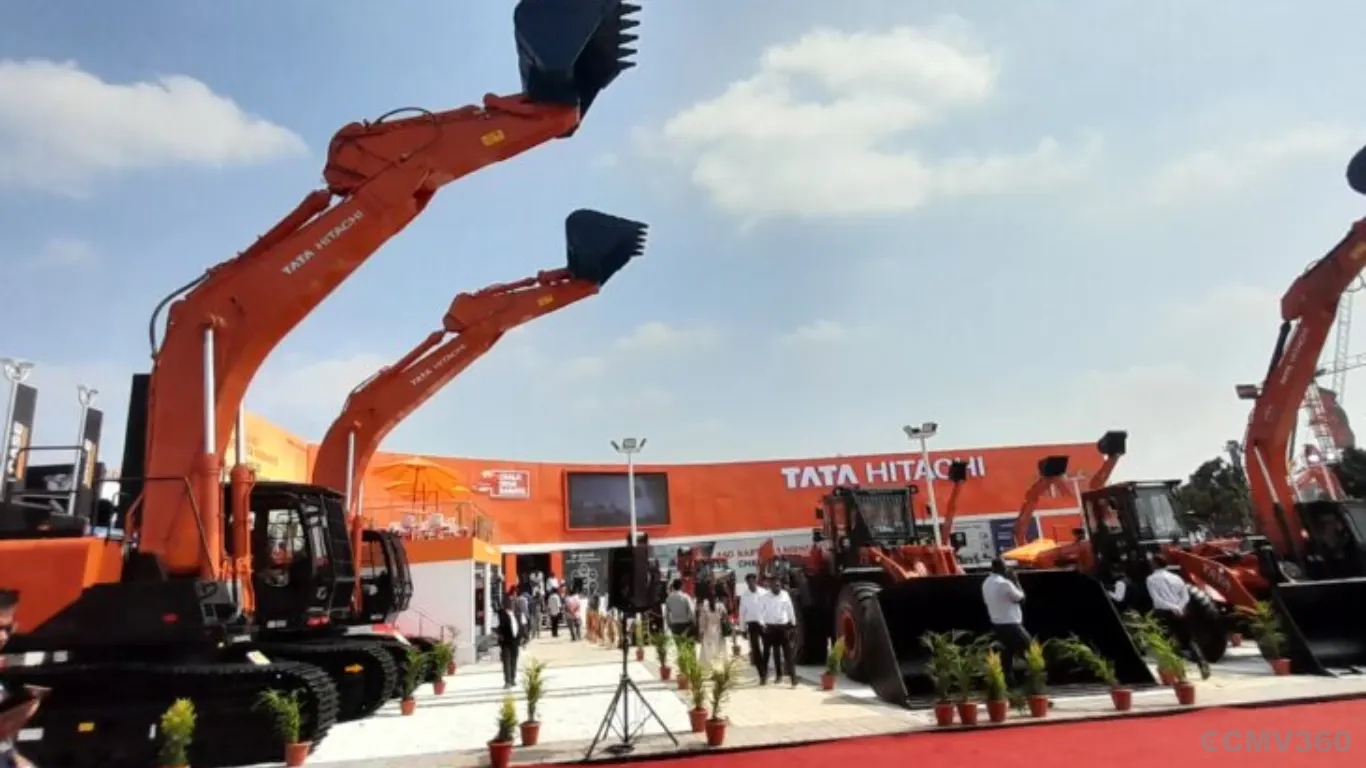
Tata Hitachi’s Commitment to the Electric Future
Bringing the above into practice, Tata Hitachi’s strategy is clear:
They are developing and showcasing electric excavator prototypes (including mini and medium-sized machines) in India, signalling a future product roadmap.
Their localisation investment (₹200 crore +) ensures that electric machine manufacturing, parts, service, and support are being built locally, a key enabler for adoption.
Their emphasis on ‘sustainable solutions’ and nation-building aligns with India’s broader infrastructure, mining, and climate goals.
By offering electric equipment options alongside diesel machines, they are giving Indian customers a choice and helping pave the supply chain and support ecosystem needed.
Together, these positions Tata Hitachi as the leading Indian manufacturer ready to deliver electric construction and mining equipment at scale.
Also Read: JCB Telehandler: Boosting Productivity with Stage 5 Innovation
CMV360 Says
The era of diesel-dominated construction equipment in India is giving way to a cleaner, quieter, more efficient future. Electric machines are no longer experimental they are becoming practical alternatives. For companies in infrastructure, mining and large-scale construction, the benefits are clear: lower operating costs, sustainability credentials, regulatory readiness and operational advantages.
The hurdles higher initial cost, charging infrastructure, battery range, remain real, but the momentum is strong. With manufacturers like Tata Hitachi leading the charge, India has the opportunity to leap-frog into the next generation of heavy equipment.
If you’re considering electric excavators, loaders or dump trucks for your operations, now is the time to assess strategy: evaluate which machines suit your use cases, start planning infrastructure, engage manufacturers (like Tata Hitachi) and consider how a mixed fleet can evolve to full electric over time.
In the words of Tata Hitachi’s theme at BAUMA/EXCON: “Aao Kartavya Nibhaye, Chalo Desh Banaye”, Let’s fulfill our duty and build our nation. The machines are evolving, now it’s time for your strategy to evolve too.
Ad
Articles
JCB vs SANY: Which Excavator Saves More Money, Fuel & Time? Full Breakdown!
A simple, detailed JCB vs SANY excavator comparison covering price, features, fuel efficiency, technology, service support, machine types, and best use cases to help cont...
25-11-2025 10:11 AM
Read Full NewsCan Electric and Hybrid Construction Equipment Replace Diesel Machines in India?
Can electric and hybrid construction equipment replace diesel machines in India? Explore benefits, challenges, power, cost, and future adoption trends in India’s growing ...
19-11-2025 06:11 AM
Read Full NewsSmart Guide to Buying Used Dozers in India: Save Big with Expert Tips, Trusted Brands, and Full Inspection Checklist
Explore a detailed guide to buying used dozers in India. Learn about inspection tips, pros and cons, trusted brands, and smart buying practices for affordable and reliabl...
27-10-2025 09:10 AM
Read Full NewsJCB Telehandler: Boosting Productivity with Stage 5 Innovation
Explore JCB telehandler price, on-road cost, EMI options, loan calculator, and Stage 5 technology benefits. Learn how JCB boosts productivity, saves costs, and ensures cl...
16-09-2025 09:09 AM
Read Full NewsSmart JCB Mileage Hacks to Save More on Fuel
Discover smart tips to improve JCB mileage, reduce diesel costs, and boost efficiency. Learn about JCB models, fuel-saving practices, maintenance, and operator techniques...
18-08-2025 10:08 AM
Read Full NewsJCB 3DX Vs JCB 2DX: Which Backhoe Loader Should You Choose?
Compare JCB 3DX vs 2DX backhoe loaders, features, price, and EMI options to choose the best machine for your needs....
31-07-2025 12:07 PM
Read Full NewsAd

